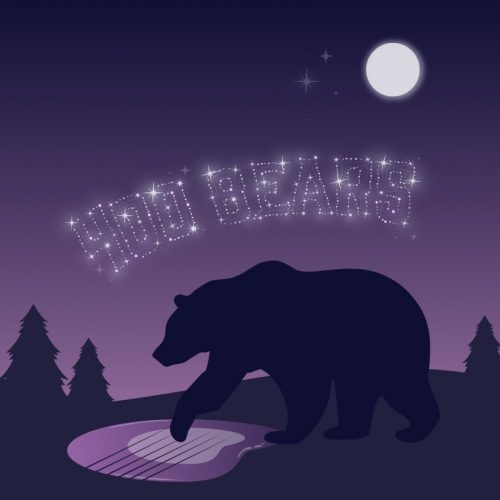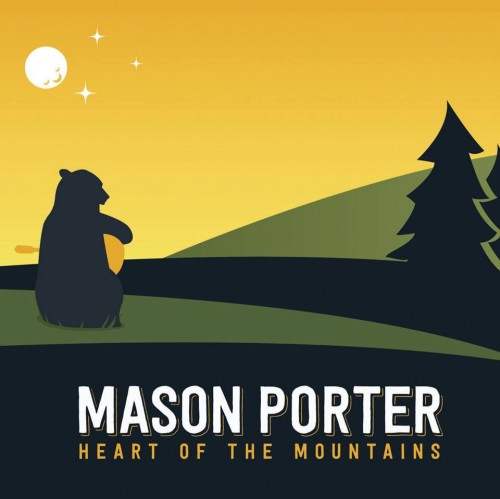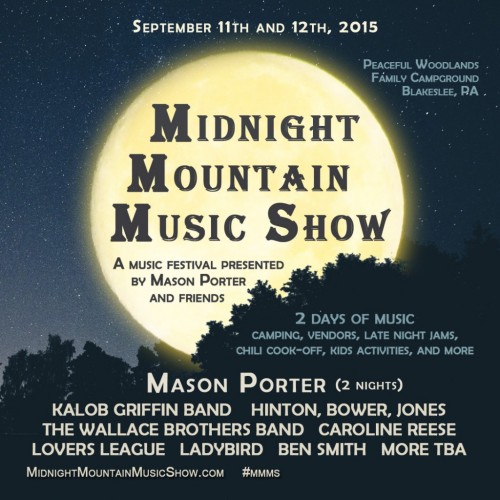Having dedicated himself full-time to music four years ago, but with live shows shut down due to the coronavirus, 2020 became the right time for Paul Wilkinson of Philly-area Americana band Mason Porter to put out his first solo album. A collection of electric blues and acoustic ditties, “400 Bears” is a reflection of the music Wilkinson had been playing live with two different live outfits recently: an electric trio and an acoustic quartet.
He tracked the record at The Music Centre in Chester Springs, Pa., with the Grammy-nominated Glenn Ferracone producing.
“He’s the one who kicked my butt and said you should make the record,” says Wilkinson. “It was more like he said you should record the album, here’s the date two weeks from now.”
The diversity of the 10-song “400 Bears” is apparent from the opening trio: “Borderline,” an easy-rolling country blues tune; the slinky guitar-and-organ blues “Memories”; and the bluegrassy “Holy Place.”
Despite using two different bands (the trio features organist Scott Coulter and drummer Josh Steingard, and the acoustic lineup has Pat Hughes on drums, Brad Hinton on dobro and Charlie Muensch on bass), the album is a cohesive piece. Talking about the commonalities between the two sets of songs (which are sequenced together on the album and not separated according to each lineup), Wilkinson considers them all to be “rootsy” and notes that the recording philosophy with both groups was the same:  “I think because it’s all happening live and us playing together,” he says.
“I think because it’s all happening live and us playing together,” he says.
Asked if he was thinking of a particular album as a sonic touchstone, he cites latter-day classic.
“In the back of mind is always the Dylan album ‘Time Out of Mind,’ but I wouldn’t say it came out like that, but with the organ tracks and the second track, ‘Memories,’ I kind of had ‘Time Out of Mind’ on my mind,” Wilkinson says.
A new wrinkle for the singer and guitarist on “400 Bears” is his pedal steel playing.
“I don’t think I would have learned it if it wasn’t for a global pandemic,” he notes. The instrument itself “kind of fell in my lap,” he says. “I have an uncle who is a musician and bass player who had a pedal steel who at one point said do you want to try this out? But everything had to shut down for me to ever learn this, and I just thought I’m never going to get the chance again. It’s different. There’s a different technique to it.”
Another major adjustment for Wilkinson was helming the songwriting, which is primarily handled in Mason Porter by Joe D’Amico, whom Wilkinson calls “a songwriting machine.”
“It’s the difference between being a solo artist and not having those core band members to bounce ideas off of, say when Mason Porter are doing stuff and Joe and I are communicating tons back and forth,” he explains. “Putting this record out on my own, I have friends and people to talk to, but there’s not that same back and forth.”
The last song on the album is “Take This Hammer,” a traditional work song recorded over the years by Mississippi John Hurt, among others. Wilkinson’s atmospheric version stretches out past nine minutes.
“I liked that song and thought, hey let’s record that one and just set up the framework: acoustic [guitar], vocal, a little rumble intro,” he recalls. “Brad Hinton is on two different lap steel parts, and at the end of the tune, he just kept going with some effects and stuff. … I thought, whoa, this is turning into something really cool. … It really did take on a life of it’s own that I didn’t envision, but all the parts did really feel special.”
Mason Porter, which has grown its annual Midnight Music Show festival in Blakeslee, Pa., into a sellout, is “chilling out right now,” Wilkinson says.
“If something is coming our way, we’ll do it,” he says. “But each member is in their own place in life, is kind of the best way to say that. We’re not pushing each other too hard.”




Leave a Reply